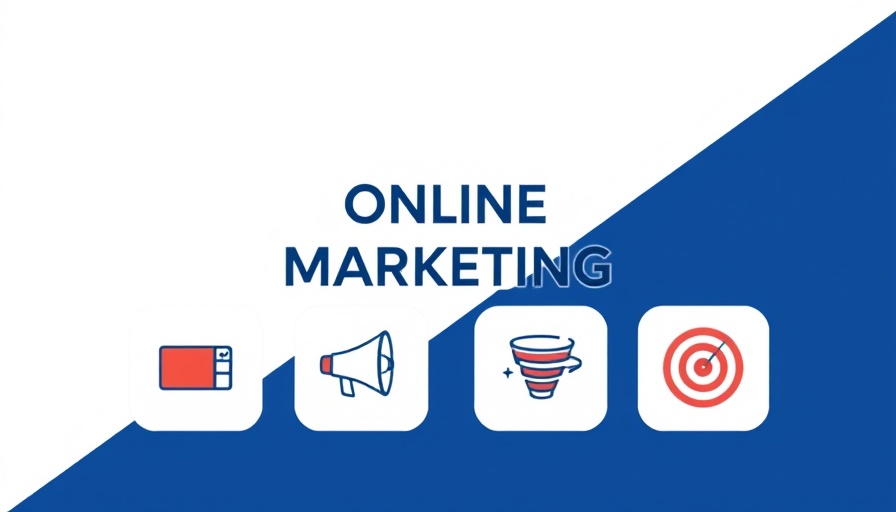
Understanding the Online Marketing Landscape in 2025
As we advance further into 2025, the digital marketing landscape is evolving at a rapid pace. With changes brought about by technology, consumer behavior, and market demands, it’s crucial for professionals, business owners, and marketers to stay informed about common pitfalls that can hinder their online strategies. Understanding these mistakes not only helps in avoiding them but also in leveraging best practices for successful marketing campaigns.
Common Mistakes That Can Derail Your Marketing Efforts
The five most significant online marketing mistakes to avoid in 2025 include:
- Neglecting Mobile Optimization: As mobile usage continues to dominate, websites not optimized for mobile devices are at risk of losing a significant audience. In 2025, ensuring your site meets mobile-first indexing standards is critical for visibility and user retention.
- Ignoring Analytics and Data Reporting: Without proper tracking of marketing efforts, understanding what works and what doesn’t can become a guessing game. Using analytics tools to interpret data empowers brands to make informed decisions, optimize performance, and enhance user experiences.
- Underutilizing Content Marketing Strategies: Quality content remains king, but it’s essential to distribute it effectively and use SEO techniques to help it reach its target audience. Brands should leverage innovative approaches, such as video marketing strategies and podcasts, to enhance engagement.
- Relying Solely on Paid Advertising: While PPC advertising can provide immediate results, balancing it with organic strategies ensures long-term growth. Maintaining a comprehensive approach that includes social media marketing trends and SEO updates will yield sustainable success over time.
- Overlooking Customer Engagement Strategies: Mechanisms like email marketing capabilities and personalized content can enhance customer experiences. Engaging with audiences through methods such as influencer marketing trends or community management is critical in establishing brand loyalty and driving conversions.
The Importance of Combining Strategies
In 2025, a multifaceted approach to digital marketing is essential. Using a harmony of analytics, SEO best practices, and creative content allows brands to build robust marketing funnels and improve ROI. Alongside effective online advertising trends, brands can implement omnichannel marketing strategies to ensure a cohesive customer journey.
Practical Insights to Avoid Mistakes
To practically implement strategies that negate common marketing errors, consider the following:
- Conduct Regular SEO Audits: Evaluating your site's performance regularly aids in identifying keyword research techniques and potential areas for improvement.
- Create a Strong Content Distribution Strategy: Use digital PR strategies to enhance the reach of your content across different platforms, ensuring it meets audience needs effectively.
- Invest in Marketing Automation Tools: These tools can streamline your efforts, from analytics and data reporting to refining customer engagement strategies.
Future Predictions: The Evolving Role of AI in Marketing
AI is set to revolutionize digital marketing further. As algorithm updates transform search engine optimization, marketers should remain agile, adapting to new tools and strategies, including voice search optimization and chatbots for enhanced customer interaction. The future will see deeper integration of artificial intelligence, leading to smarter, data-driven marketing decisions.
Taking Action: Beyond Awareness
Knowing these common online marketing mistakes is just the first step. It’s vital for professionals to actively engage with their audience, leverage technology, and stay ahead of trends to ensure successful campaigns. Are you prepared to refine your marketing strategies in 2025?
Call to Action: Dive into the world of digital marketing trends for 2025! Whether you're optimizing your SEO updates or enhancing your content marketing strategies, now's the time to integrate fresh insights into your approach. Empower your marketing efforts today!
 Add Row
Add Row  Add
Add 




Write A Comment